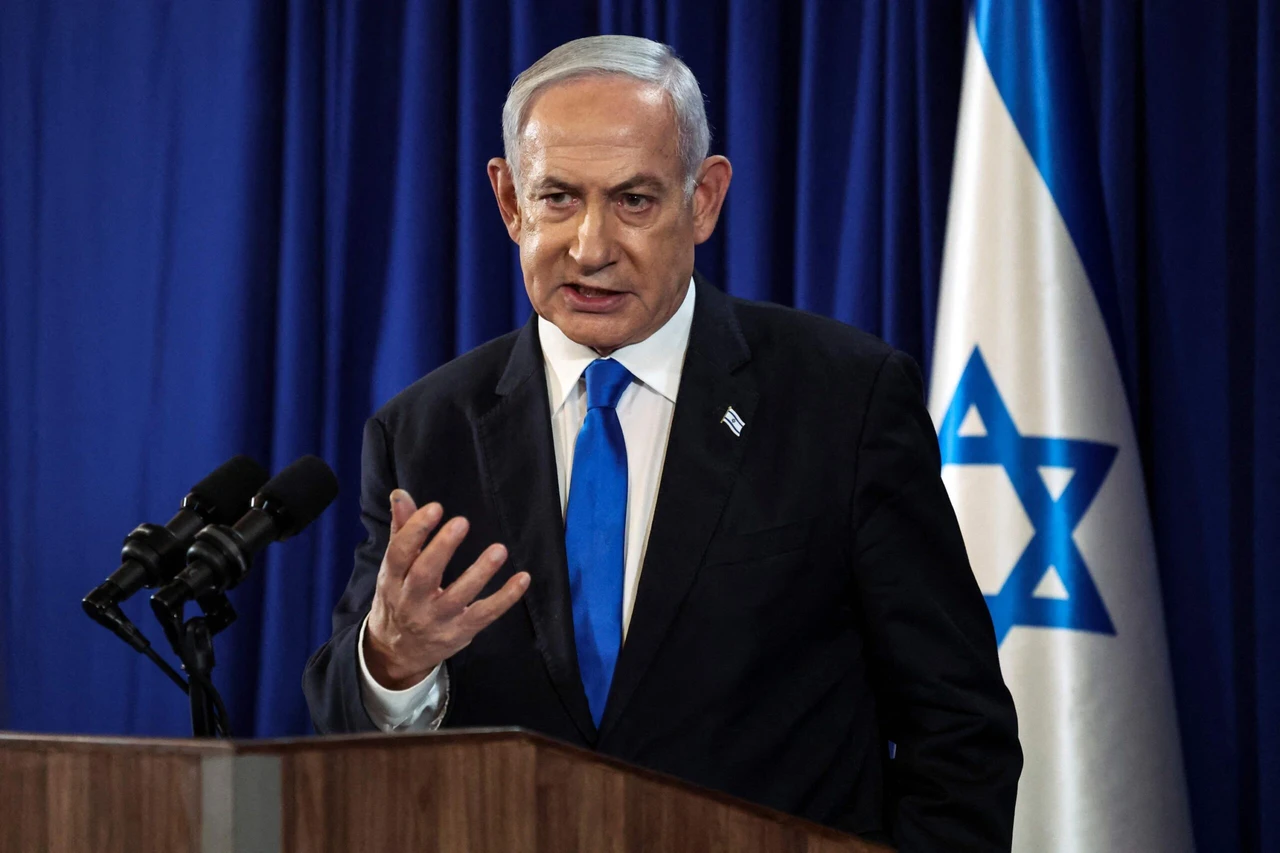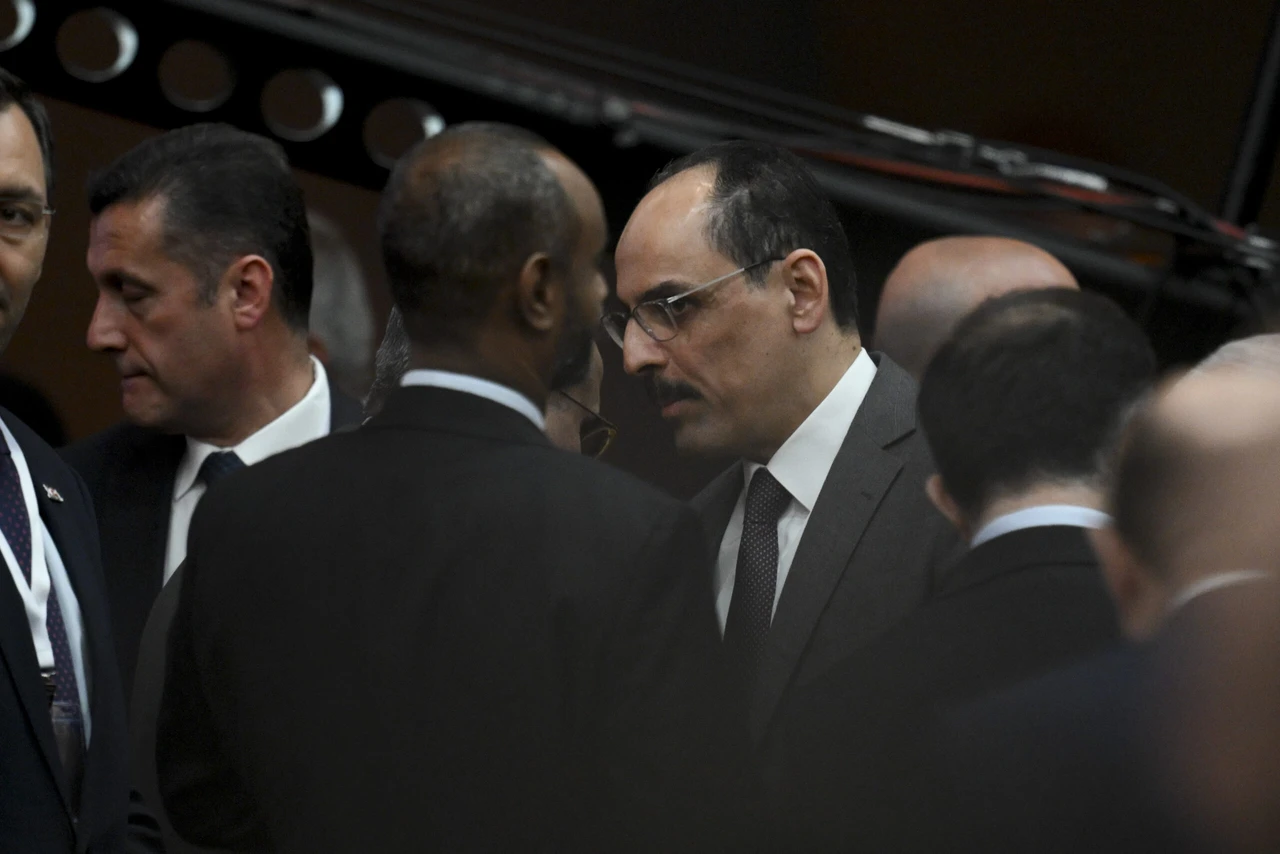Israeli PM opposes unilateral cease-fire in Lebanon, rejects rearming of Hezbollah
 Israeli Prime Minister Benjamin Netanyahu addresses a press conference in Tel Aviv, Israel, July 13, 2024. (AFP Photo)
Israeli Prime Minister Benjamin Netanyahu addresses a press conference in Tel Aviv, Israel, July 13, 2024. (AFP Photo)
Israeli Prime Minister Benjamin Netanyahu firmly rejected any proposal for a unilateral cease-fire in Lebanon, emphasizing that such an arrangement would fail to address the security threats posed by Hezbollah.
In a call with French President Emmanuel Macron on Tuesday, Netanyahu underscored that Israel would not accept any settlement allowing the militant group to rearm.
Netanyahu’s office released a statement following the discussion, saying, “The Prime Minister told President Macron that he opposes a unilateral cease-fire, which would not change the security situation in Lebanon and would return the country to its previous state.”
He further insisted that Israel is committed to ensuring the safety of its northern border, stating, “Israel is operating against Hezbollah to prevent it from threatening Israel’s citizens on the northern border and to enable them to return to their homes safely.”
The Israeli leader also expressed strong opposition to Macron’s decision to convene an international conference on Lebanon, scheduled for Oct. 24 in Paris. Netanyahu voiced concerns over the involvement of countries such as South Africa and Algeria, whom he accused of denying Israel’s right to self-defense.
“Israel would not agree to any arrangement that does not stop Hezbollah from rearming and regrouping,” the statement added.
The call between Netanyahu and Macron comes amid heightened tensions in southern Lebanon, where Israeli forces have been carrying out extensive airstrikes against Hezbollah positions since late September. Israel’s military campaign, which began on Sept. 23, has reportedly claimed the lives of over 1,500 people and displaced more than a million, further deepening the humanitarian crisis in the region.
The situation escalated on Oct. 1 when Israel expanded its military operations with a ground incursion into southern Lebanon. These actions follow over a year of cross-border hostilities between Israel and Hezbollah, which have intensified since Israel launched its offensive on Gaza in response to a Hamas attack last year. According to reports, nearly 42,400 people, the majority of them women and children, have been killed in Gaza as a result of Israel’s operations.
In light of these developments, Macron has sought to mobilize international efforts to address Lebanon’s urgent protection and relief needs. The upcoming Paris conference will bring together Lebanon’s partner nations, the United Nations, the European Union, and various international and regional organizations, alongside representatives from civil society.
However, Macron’s approach has not been without controversy. On Oct. 6, the French president called for a halt to arms deliveries to Israel, stating that France was not involved in supplying the weapons used by Israeli forces in Gaza.
Netanyahu, in a televised response, criticized Macron’s stance, stating, “Israel will prevail with you or without you.”
Shortly after Macron’s comments, the French presidency issued a clarification, affirming that France would continue to provide Israel with the necessary equipment for its defense.
The two leaders held another phone call on Oct. 10, during which Macron reiterated France’s commitment to Israel’s security and assured Netanyahu that French military resources were prepared to assist Israel in the event of attacks from Iran.



